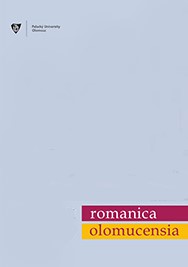Instituto Nacional do Cinema Educativo e as relaçoes internacionais: redes intelectuais através de viagens ao exterior durante a Era Vargas
The Instituto Nacional do Cinema Educativo and international relations: intellectual networks through travels abroad in the Era Vargas
Author(s): Ricardo Borrmann, Washington Dener dos Santos CunhaSubject(s): Education, Film / Cinema / Cinematography
Published by: Univerzita Palackého v Olomouci
Keywords: Educative Cinema; INCE; intellectual networks; international relations; Edgard Roquette-Pinto; Brazil;
Summary/Abstract: This paper analyzes the relations between intellectuals, state institutions, and the educative uses of cinema in the Era Vargas (1930-1945). The aim is to highlight the importance of intellectual networks established through visits from state agents abroad. While the traditional bibliography on cinema emphasizes the origins of national cinematheques in the film club tradition, in this work another origin, intrinsically connected to state interests, mostly in propaganda and in the educative usages of cinema, is diagnosed. It is argued that the Brazilian Instituto Nacional do Cinema Educativo (INCE) is an example of the historical relevance of transnational exchanges enabled by intellectual networks constructed by public agents through their travels abroad. The focus of the analysis is especially on the foundational documents of the INCE, as well as on letters and reports from public agents who went abroad, from the digital collection of the Centro de Pesquisa e Documentaçao de História Contemporânea do Brasil at the Fundaçao Getúlio Vargas (CPDOC/FGV). The INCE seems to have acted as the first attempt at a "national cinematheque" in Brazil and the archival sources that are analysed show several intersections with the equivalent institution in Germany, the influential Reichsstelle für den Unterrichtsfilm, RfdU. The conclusions show how important a transnational approach is for the intellectual and institutional history behind cinema. Esse artigo analisa as relaçoes entre intelectuais, instituiçoes estatais e os usos educativos do cinema durante a Era Vargas (1930-1945).
Journal: Romanica Olomucensia
- Issue Year: 34/2022
- Issue No: 1
- Page Range: 97-112
- Page Count: 16
- Language: Spanish

